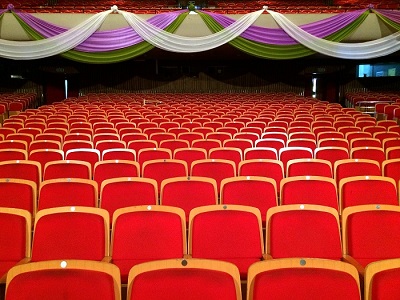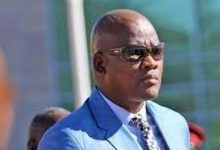
Literary Ghanaian theatre had its foundation solidly laid in Ghana by Efua Sutherland and Joe De Graft. The set wow great pioneers of the Ghanaian theatre worked closely together to begin serious theatre practice in Ghana on the eve of Ghana’s Independence in 1957 and after.
Playwriting was given a great impetus with the founding of the Studio Players and the Experimental Theatre simultaneously by Efua Sutherland and Joe De Graft. Before this period, what took place in the Gold Coast between 1915 and 1939 was nothing more than closet drama writing based on European orientation and ideology.
The first Ghanaian play to be written titled, The Blinkards was in 1915. Kobina Sekyi a lawyer by profession was the playwright. This play was staged at the Cape Coast Town Hall. This was followed by another play titled, The Fifth Landing. Stage in 1925 by F.K. Fiawoo, headmaster of the Anloga Zion College. J. B. Danquah, one of the big six freedom fighters of the Gold Coast also wrote a play titled, The Third Woman in 1939.
As pointed out, these were early attempts by Ghanaians at playwriting which lacked serious plot development of character that can be seriously analysed as dramatic works. The Ghanaian theatre indisputably took off on a serious note just before and after Ghana’s Independence when Efua Sutherland and Joe De Graft emerged on the scene with well written plays designed for the stage, such as Foriwa, Marriage of Anansewa Edufa etc by Efua Sutherland; and Sons and Daughters Muntu, Through A Film Darkly etc by Joe De Graft. The Ghanaian literary theatre owes a great deal to the pioneering work by these two distinguished Ghanaian And African Playwrights, dramatists and theatre practitioners.
Infact, the Ghanaian theatre had gone through a lot of difficulties and challenges in its evolution and development up to the present time. The main challenge facing the Ghanaian theatre since time immemorial is that of theatre psyche and for that matter, audience awareness. No sincere Ghanaian theatre lover, enthusiast, or theatre practitioner or critic will deny the fact that the herculean task facing the development of the Ghanaian theatre is that of theatre psyche or audience awareness.
The deep rooted ignorance among Ghanaians about the great value and importance of theatre to nation building has been long standing problem which militates against a healthy promotion and development of the Ghanaian theatre; hence the realization of a meaningful, and realistic high level of Ghanaian theatre practice had continuously been a mirage up to this time; although the Ghanaian theatre sometimes seemed to be up surging and blossoming. This is true at certain periods in the life of the Ghanaian theatre.
But the momentum is however not sustained for long, and one sees the Ghanaian theatre dwindling and waning to a gloomy atmosphere. One can assert that one of the glorious periods of the Ghanaian theatre was witnessed during the early days of its evolution and development at the time of Efua Sutherland and Joe De Graft during the reign of President Nkrumah in the first Republic. President Nkrumah was a great lover and enthusiast of theatre. As a results of the great interest Nkrumah had in the early days of the Ghanaian theatre, he gave his maximum support and that of his C.P.P. government to the pioneers of the Ghanaian theatre.
It is significant to note that President Nkrumah founded his own theatre group known as the Osagyefo Players which was based at the Flagstaff House where he stayed in the 1960s. The Osagyefo Players performed mainly at the Flagstaff House, his official residence on different occasions, either for him and his ministers cabinet or foreign dignitaries. Owing to his knowledge about the value of theatre to nation building, and his deep love and interest in the development of the Ghanaian theatre, Nkrumah and his government provided a lot of money for its healthy development.
Had President Nkrumah not been overthrown by the military in February 24 1966, the Ghanaian theatre would have had a healthy and smooth development and the story of the Ghanaian theatre would have been different from what it is today. Another significant period of the Ghanaian theatre was the period between the 1970s and the 1990s when a number of prominent Ghanaian playwrights emerged on the scene such as Bill Marshall, Asiedu Yirenkyi, Mohammed Ben Abdallah, Martin Owusu, Ama Atta Aidoo etc. These crop of Ghanaian playwrights made the Ghanaian theatrical stage very busy with the productions and staging of their works. Thus, the vibrance of the Ghanaian theatre was rekindled and audience awareness soared significantly. Alas! this momentum started dwindling and waning; and by the close of the 1990s towards the 2000s the brilliance and vibrance of the Ghanaian theatre had fickled out; and as at now, one can hardly observe any vitality and glimmer as far as the performance of the Ghanaian theatre is concerned.
Personally, I have the conviction that this periodic or occasionally glitter and gloom atmosphere in the performance of the Ghanaian theatre can be halted now to make it experience a healthy, consistent and continual process devoid of these negative setbacks. To this end, I suggest that the ruling government of the N.P.P. should show more interest in terms of financial support, although it is doing its best to support the promotion and development of the Ghanaian theatre. Also, Ghanaian theatre practitioners should team up and co-operate with each other and solicit for support from international organizations such as UNESCO, Ford Foundation and wealthy Ghanaians as well as Ghanaian business organisations to enable them to practice efficiently to enhance the promotion and development of the Ghanaian theatre.
Furthermore, and more importantly, the administrative set-up of the National Theatre of Ghana should try and find ways and means by which the development of the Ghanaian theatre can be best realized since it has the onus and mandate to develop the Ghanaian theatre to meet world standards. It must start working very hard now by soliciting for advice and direction from Ghanaian authorities and experts, who are concerned with the development of the Ghanaian theatre.
With the right knowledge coupled with the right strategies and heavy financial support from the government, and other organistions such as have been mentioned in this article; and the National Theatre of Ghana in the front, and spearheading a national crusade to put the Ghanaian theatre on the world class stage of recognition, the Ghanaian theatre will make a significant leap forward in the realization of this noble ideal.
In conclusion, it is obvious that the Ghanaian theatre as it is now is not all that pleasant and glorifying; let alone contributing positively and hastening the developmental agenda of Ghana. It must therefore be rescued from its present doldrums, and put in the right track to benefit Ghana now, as a fast developing country in the world today.
By: Michael Akenoo Theatre Critic




